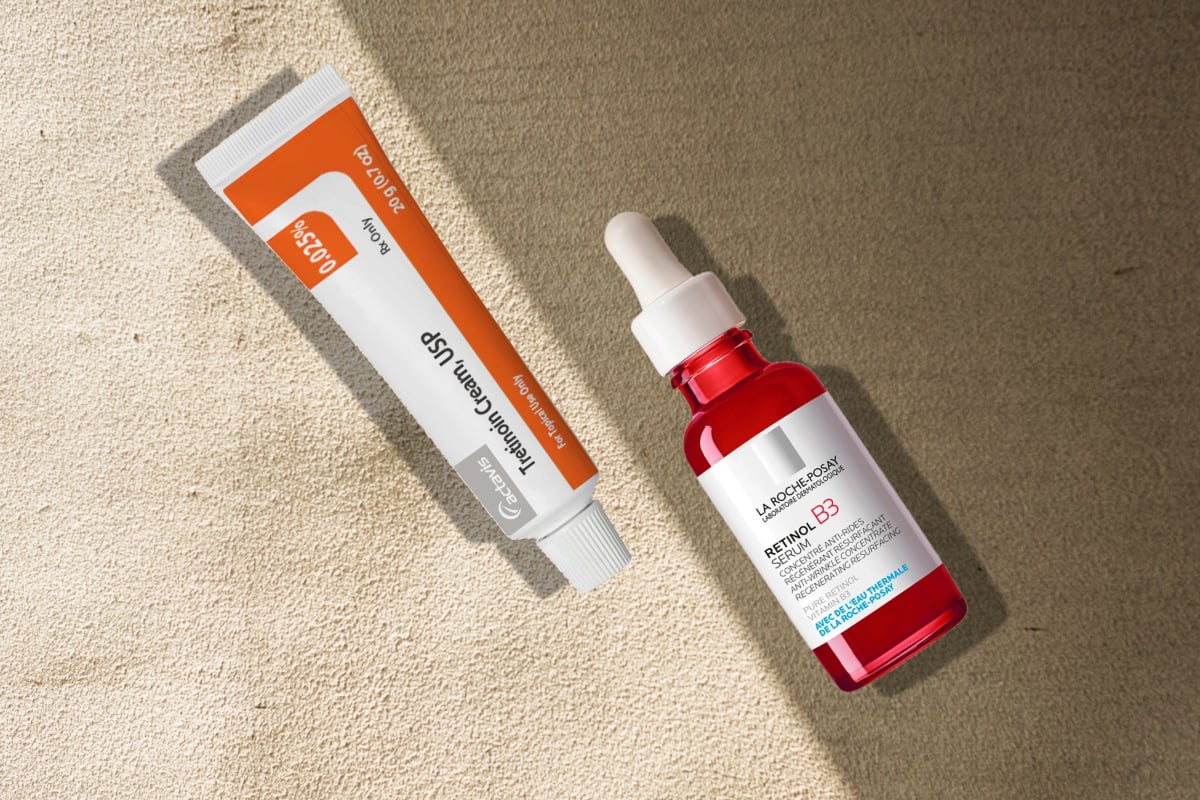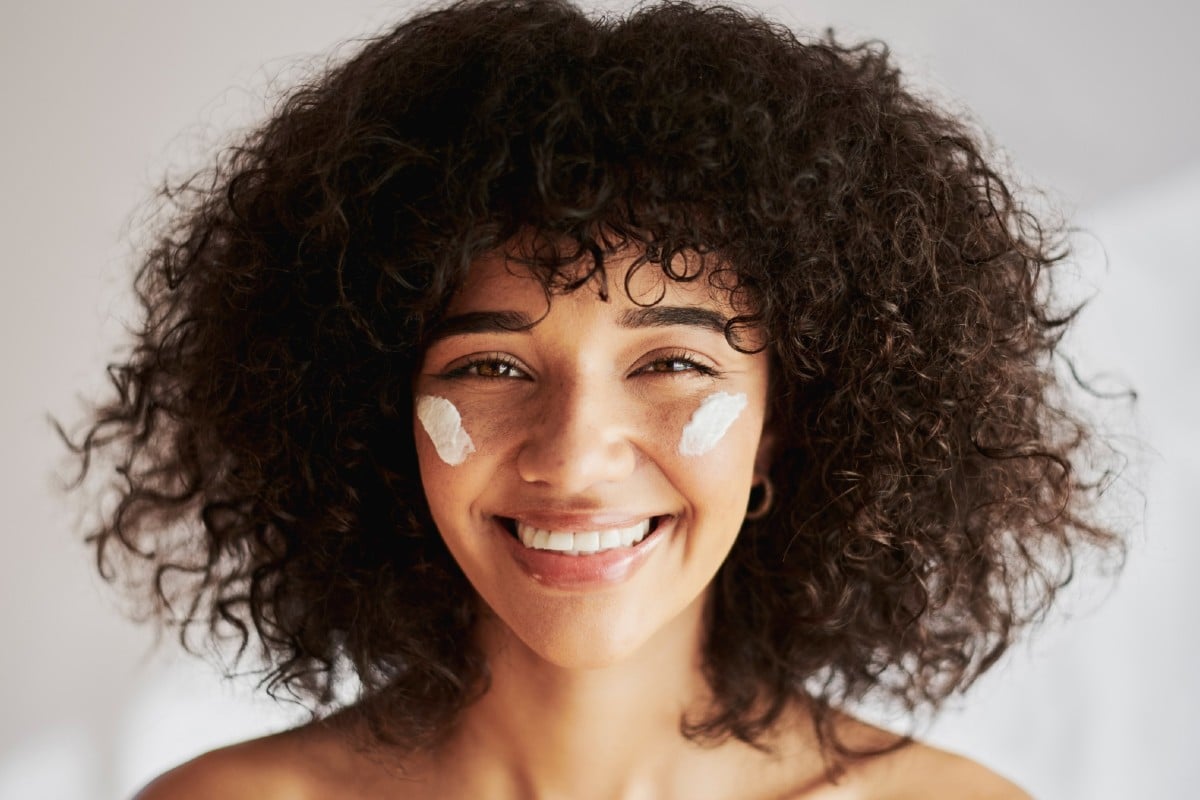Hydration is vital for all skin types. Without it, skin dehydrates, becomes dry and dull-looking, and fine lines appear more visible. At least this is what happens with a lack of hydration for most skin types. In the case of oily skin, though, dehydration can lead to sebaceous glands going into over-drive and producing even more sebum. What’s more, if the skin is not hydrated properly, it alters the protective barrier role, which can cause irritations, itchiness, or sensitivity toward skincare products.
On the flip side, when skin is hydrated, it stays more elastic, bouncy, and glowy, and somehow I know that’s something everybody needs for their skin. With this in mind, I’ve pulled out the best hydrating skincare ingredients, from humectants to occlusives and emollients, they’re all here.
Moisturizing vs. hydrating ingredients
Ok, by now, you’ve probably heard about both — hydrating and moisturizing ingredients. The difference is that while hydrating ingredients add water to the skin, moisturizing ingredients prevent transepidermal water loss (TEWL) from the complexion. In layman’s terms, you can hydrate your skin by giving it water or by preventing its evaporation.
While humectants are the only hydrating ingredients that add water, moisturizers include occlusives and emollients, which cover the skin with a protective veil to trap moisture. To know which type of hydration is right for you, you should know if your skin is dry or dehydrated. Dry skin has flaky or patchy areas, sometimes redness, while dehydration shows through a dull look and a tight feeling.
This being said, if your skin is dry or sensitive, you want to add emollients to your routine. Occlusive ingredients do best for irritated or extremely dry skin, while oily skin should stick with humectants.
Top hydrating skincare ingredients
HumectantGlycerin
Glycerin is a type of moisturizing agent that works by pulling water from the air into the skin’s outer layer — this makes it a humectant. In skincare, glycerin is mostly derived from plants or lab-made, and from all humectants, glycerin is considered one of the most effective ones. Due to its water-binding capacity, it also relieves dryness and flakey skin, the reason it’s a go-to if you struggle with eczema or dermatitis.
Our pick with glycerin:
- Paula’s Choice Electrolyte Face Moisturizer (View on Amazon)
Hyaluronic acid
By far, hyaluronic acid is one of the best hydrating skincare ingredients. Critical in maintaining skin bouncy and plump, hyaluronic acid (HA) is a sugar molecule that occurs naturally in the skin, helping cells retain as much moisture as possible. The interesting thing about hyaluronic acid in skincare is that it has multiple molecular weights, working on top of the skin and beneath the epidermis. For boosted hydration, you should use a mix of HA molecular sizes, for instant and long-term results.
Our pick with hyaluronic acid:
- PCA Skin Hyaluronic Acid Boosting Serum (View on Amazon)
Ceramides
Naturally found in the skin’s stratum corneum, ceramides are vital for keeping the protective barrier integer. A healthy barrier locks moisture and keeps potential aggressors out. Replenishing your skin with ceramide strengthens the barrier and prevents transepidermal water loss, for increased moisture. Fast fact: Ceramides fulfill their role best when paired with glycerin, amino acids, and cholesterol.
Our pick with ceramides:
- Sunday Riley ICE Ceramide Moisturizing Cream (View on Amazon)
Squalane
Squalane is the version of squalene (a lipid that makes up 10-12% of skin sebum) used in skincare products. Squalane is a highly effective emollient, super lightweight, that sinks into the pores to improve skin at a cellular level. Besides being an emollient that wraps the skin with a protective moisture barrier, squalane is also occlusive, helping trap water into the skin, making it one of the best hydrating ingredients. Squalane hydrates and softens the skin, matching tremendously with HA.
Our pick with squalane:
- Biossance Squalane + Vitamin C Rose Oil (View on Amazon)
Omega fatty acids
Fatty acids are present in the outermost layer of the skin (stratum corneum), having a role in decreasing water loss. As far as skincare is concerned, omega fatty acids are used as emollients and work to boost hydration by sealing the natural moisture and hindering water evaporation. Replenishing fatty acids in the skin promotes barrier preservation and enhances overall hydration. The best fatty acids are linoleic acid (omega-6), alpha-linoleic acid (omega-3), and oleic acid (omega-9).
Our pick with omega fatty acids:
- Lancer Omega Hydrating Oil with Ferment Complex (View on Amazon)
Lactic acid
Even if it’s part of the alpha-hydroxy acids (AHAs) family and it’s an exfoliant, lactic acid can actually help increase skin hydration when used properly. As it’s also a humectant, lactic acid increases the skin’s ability to maintain water. Plus, lactic acid helps plump the complexion also because it stimulates collagen synthesis. I suggest any of these lactic acid serums.
HumectantUrea
Urea is a humectant thanks to its ability to bind to water molecules. When used in skincare, urea can sink into the stratum corneum to boost water absorption further. Hence, urea increases the skin’s ability to retain water while also helping strengthen the barrier, being one of the most hydrating ingredients you can find in skincare products.
Our pick with urea:
- Clinique Different™ Moisturizing Lotion+ (View on Amazon)
Petrolatum (vaseline)
Petrolatum is a thick agent that works by sitting on top of the skin, where it forms a barrier that prevents water from evaporating. It’s good at filling in cracks to tackle chapped skin, relieving dryness and flakiness. Because it tends to leave a greasy feeling, it’s best to use petrolatum at night.
Our pick with petrolatum:
- Aquaphor Healing Ointment Moisturizing Skin (View on Amazon)
Vitamin E (tocopherol)
Vitamin E has both humectant and emollient properties, and its topical use— as low as 0.1% — may even increase the vitamin E stored in sebaceous glands. Applying vitamin E-infused products helps draw moisture to the skin, making it feel soft and smooth. Since it’s oil-soluble, it’s best to use vitamin E in oils and moisturizers to keep skin plump.
Our pick with vitamin E:
- The Body Shop Vitamin E Eye Cream (View on Amazon)
Panthenol
Also called pro-vitamin B5, panthenol’s main job in skincare products is to moisturize. Since it acts as a humectant, panthenol helps the skin attract water and hold onto it. On top of this, panthenol supports the skin to produce more lipids that are vital for a resilient protective barrier. In this way, panthenol helps skin stay soft and maintain its elasticity.
Our pick with panthenol:
- Alpha-H Vitamin B Serum (View on Sephora)
Snail mucin
Snail mucin is the excretion from a snail, which is packed with nutrients like hyaluronic acid, vitamin E, and copper peptides. While HA pulls water into the outer skin’s layers, copper peptides increase collagen and elastin production in the skin. Snail mucin works to repair the barrier function, locking out external irritants while holding into moisture, and it’s an important compound that boosts collagen, helping keep skin plump. No wonder it’s one of the best natural hydrating ingredients.
Our pick with snail mucin:
- COSRX Advanced Snail 96 Mucin Power Essence (View on Amazon)
Shea butter
Shea butter comes from the kernels of shea trees and is used in skincare due to its ability to soak into the skin, where it creates a smooth and soft film that seals in moisture, strengthening the skin’s protective barrier. This is possible because shea butter is rich in several types of fatty acids (linolenic, oleic, palmitic, and stearic).
Our pick with shea butter:
- L’Occitane Shea Light Comforting Face Cream (View on Amazon)
Aloe vera
Often used for its soothing properties, aloe vera also acts as a hydrating ingredient — fair enough since it contains about 95% water. Aloe vera locks moisture in because it’s rich in phytosterols, molecules known to prevent TEWL. When applied to the skin, aloe vera also acts as glue, making the top layers stick together, resulting in softer and smoother skin.
Our pick with aloe vera:
- Kiehl’s Soothing Hydration Masque (View on Amazon)
Honey
A potent humectant, honey is able to retain moisture, hydrating and keeping skin plump. Not only does honey draws moisture from the air, but it also penetrates the skin due to the high content of special enzymes, giving it long-lasting hydration and glow.
Our pick with honey:
- Guerlain Abeille Royale Watery Oil (View on Nordstrom)





